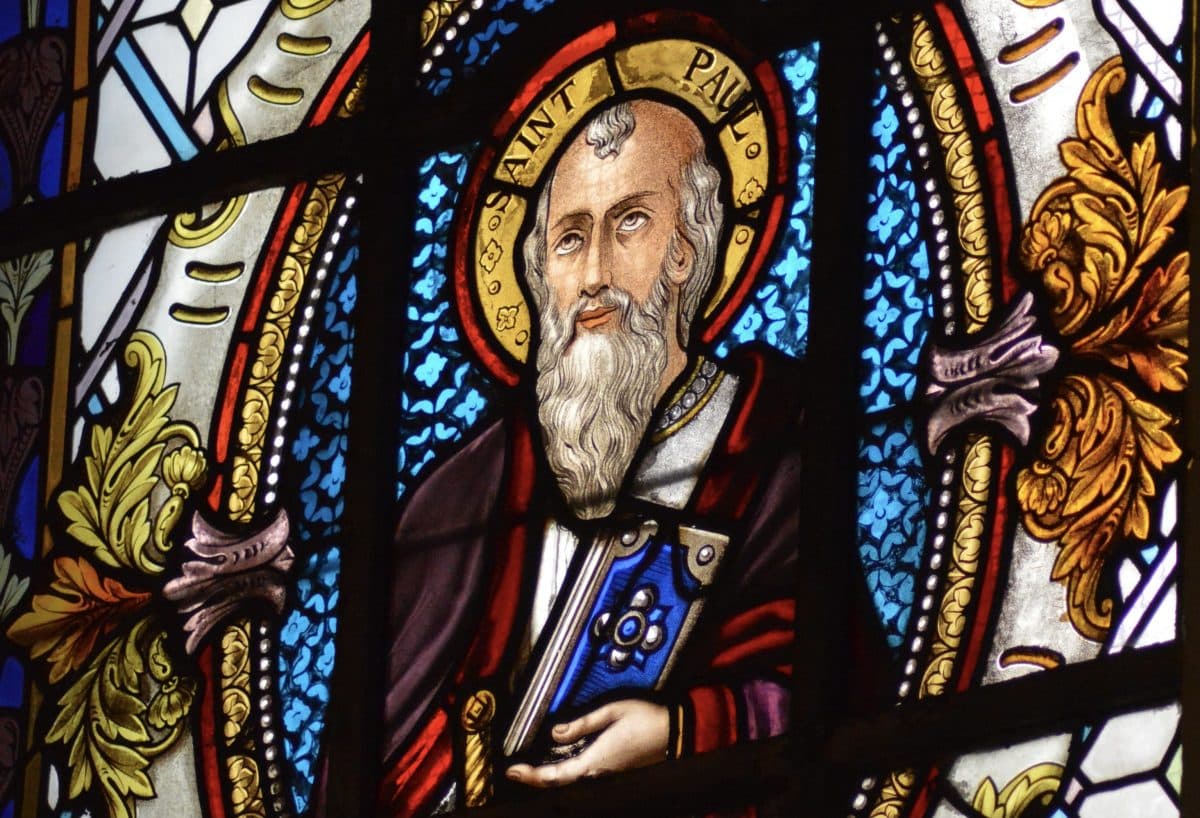
Conservatives are generally known for having much pride in being a people of Scripture and a people of freedom. Daring to intrude on the sacred “home turf” that conservatives claim to own, climbing over the wall they have built around Scripture (with NO TRESPASSING signs), and dissenting from their notions of freedom, I gladly offer the following scriptural and philosophical refutation to conservative insistence on not wearing masks or getting vaccinated. The scriptural text for this discussion is 1 Corinthians 8 where Paul’s subject is whether Christians should eat meat offered to idols.

Rodney Kennedy
I suggest that the issue of whether we ought to wear masks and get vaccinated should be investigated in a manner analogous to St. Paul’s teachings. For one example, while the claim that people have the freedom to not wear masks or get vaccinated is lawful, it is not beneficial. Paul says, “Do not seek your own advantage, but that of the other.” This suggests that we should follow the medical guidelines to help mitigate the spread of COVID-19. And we should do so “without raising any question on the ground of conscience.”
The issue in 1 Corinthians 8 is knowledge. The analogy is that we have the knowledge that wearing a mask and getting vaccinated is an important deterrent to the spread of COVID-19. This often leads to anger against those who refuse to get vaccinated. Using Paul’s language we would say that these people are “the weak.” This also means that we have ignored Paul’s contention that “knowledge puffs up.” The debate about who are “the strong” and who are “the weak” seems to be an unending cycle of useless arguments.
Another example would be if someone invited you to dinner and they ask you to please wear a mask and wash your hands. You should do as the host requests, “and for the sake of conscience – I mean the other’s conscience, not your own.” Paul’s discussion of eating meat offered to idols moves beyond questions of freedom and liberty, toward acting in ways that glorify God. He insists that we should not seek our own advantage over those who have scruples about not eating meat offered to idols. In this reading, even if I were convinced that I shouldn’t follow CDC guidelines or have the vaccinations or wear a mask, I should do so for the sake of others.
Perhaps we are ignoring the dangers of the pandemic because so many Americans have a disdain for concerns about the meaning of language – words like “freedom,” “rights,” and “liberty.” Philosopher Alasdair MacIntyre notes that “Marxists share with conservatives a disdain for concerns about the meaning of language, but he observes that it is exactly at the level of language that the moral inadequacies and corruptions of our age are evident.” In other words, we do not really have a fight over health issues, but an epistemological war over the meaning of words.
Perhaps conservatives are unaware that “choice” has replaced “character” as crucial for moral agency. It seems odd that conservatives would consent to reducing human existence to matters of choice, but this economic reality of a consumerist culture overwhelms even the Calvinists among us. In our culture, choice has overwhelmed not only the market, but even truth. There is a consumer-based, individualist-influenced notion of truth. The truth is now contestable by claims that are plainly not true. In other words, conservatives now mirror the fundamental characteristics of liberalism.
This would also mean that conservatives have been overly influenced by thinkers such as Kant and Reid asserting that choice is a decision between desire and the requirements of morality and by Sartre’s insistence that choice is the condition of an individual’s authenticity. In these philosophers there is no room for the moral agent. There is simply choice.
Somewhere along the way, we seem to have lost one of MacIntyre’s central contentions that “the concept of an intelligible action is a more fundamental concept than that of an action.” If we combine St. Paul’s teaching about “eating meat offered to idols” with MacIntyre’s After Virtue we may discover the “best type of human life is lived by those engaged in constructing and sustaining forms of community directed towards the shared achievement of those common goods without which the ultimate human good cannot be achieved.” In our current state of “messiness” we seem to deny any place for a determinative conception of the human good in our public discourse. The very notion of a good that grounds a common life is under attack.
It may seem odd that our current political malaise has reduced itself “to mask or not to mask,” but herein lies the nature of our confusion.
Rodney Kennedy has his M.Div. from New Orleans Theological Seminary and his Ph.D. in Rhetoric from Louisiana State University. The pastor of 7 Southern Baptist churches over the course of 20 years, he pastored the First Baptist Church of Dayton (OH) – which is an American Baptist Church – for 13 years. He is currently professor of homiletics at Palmer Theological Seminary, and interim pastor of Emmanuel Friedens Federated Church, Schenectady, NY. His sixth book – The Immaculate Mistake: How Evangelicals Gave Birth to Donald Trump – is forthcoming in the next few months from Wipf and Stock (Cascades).






